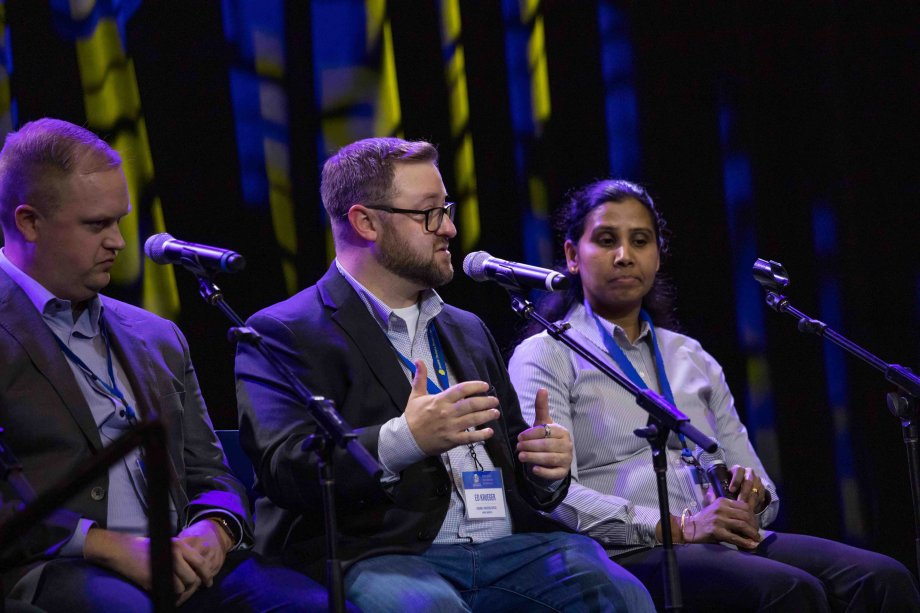
The sixth annual Data Science Symposium at South Dakota State University kicks off Feb. 5 with a new sponsor — the National Science Foundation’s Division of Mathematical Sciences.
The independent agency of the federal government that is best known for funding faculty research also funds STEM education efforts. With five years of attendance data, the local planning group decided to submit a science, technology, engineering and math funding proposal to the National Science Foundation to help offset the cost of attendance for college students, according to Semhar Michael, associate professor of statistics and committee chair.
The National Science Foundation came through with a $7,500 grant to cover room, board, and per diem for out-of-area students attending the two-day conference.
All told, it takes $25,000 to pay for keynote speakers, travel costs for workshop instructors, facility rental and food, which includes an opening-night banquet. The NSF award is particularly fortunate this year because corporate sponsorship tailed off some in 2024 due to a downturn in the industry, Semhar said. Previous sponsorships were more than enough to cover conference costs, she said.
“This year might be a little tighter,” said Michael, but the NSF funds will continue a tradition begun in 2022 of offsetting student travel costs.
Grant offsets student travel costs
In figuring the grant request, the committee projected up to $300 per student for 25 students, Michael said.
At two weeks before the symposium, 18 students had been approved to have their travel and meals covered through the program. Outreach was continuing with a focus on small colleges in the Dakotas, Iowa and Minnesota as well as the South and North Dakota tribal colleges. She said organizers also are working with the Wokini Initiative at SDSU.
“I know for sure students cannot always come up with the money to cover participation cost, and a lot of times small schools don’t have the travel budget,” Michael said.
The event draws about 200 people with half of them students and the remainder being faculty and industry representatives, she said. About 40% of the student are undergrads with 60% grad students. Most come from SDSU, but Dakota State sends a good-sized delegation and there are handfuls from the University of South Dakota, South Dakota Mines and Northern State, she said.
Keynoters hail from California
Headlining the sixth annual symposium are Timothy Li, a financial tech entrepreneur and lecturer at University of Southern California, Viterbi School of Engineering, who will give the banquet address Monday evening. Rami Krispin, a data science and engineering manager at Apple, kicks off Tuesday’s program.
Li will give the talk “Evolution of FinTech, a Personal Journey.” He has spent the past 20 years building financial technology projects for banks and those in the financial industry, including Intel Corp. and JPMorgan Chase. He currently serves on multiple financial tech advisory boards.
Michael said he comes recommended by Thomas Brandenburger, a professor and longtime symposium committee member.
Krispin will give the talk “The Role of the Data Scientist in the Era of LLM and GenAI.” Earlier this year the Apple leader spoke via Zoom to SDSU students. He is the author of “Hands-On Time Series Analysis with R” and is working on his next book, “Applied Time Series Analysis and Forecasting.”
Time series analysis is a series of data points indexed in time order, generally, taken at successive equally spaced points in time.
More information is available at https://openprairie.sdstate.edu/datascience_symposium/2024/ or by contacting Michael at semhar.michael@sdstate.edu.
- Contact:
- Telephone number: 605-688-4538
Republishing
You may republish SDSU News Center articles for free, online or in print. Questions? Contact us at sdsu.news@sdstate.edu or 605-688-6161.

